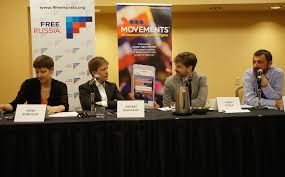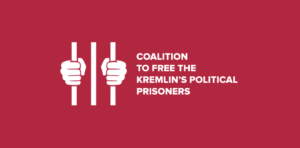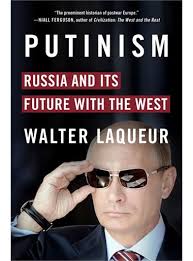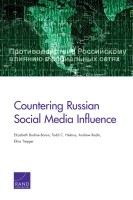
Free Russia Foundation
The hope for a more viable democratic political force in Russia depends on resilience of Western democracies, according to a new report.
The façade of stability and strength of the current political regime in Russia belies the possibility of a precipitous and dramatic shift in the country’s organization, direction, regional role and foreign policy approach, form of government and even its physical shape and size, writes Natalia Arno, President of the Free Russia Foundation. The proposition that a dramatic change in Russia is possible is not far-fetched, she argues in the foreword to the analysis, Russia Scenarios 2030, outlining twelve hypothetical evolutions suggested by five prominent Russian authors: Vasily Gatov, Vladislav Inozemtsev, Aleksandr Morozov, Denis Sokolov and Ilya Zaslavskiy.
After the collapse of the USSR, the West has mostly failed to export its democratic norms to the post-soviet region. Instead, the main import of corrosive practices along with outright corruption has been happening from kleptocratic regimes, especially from Russia, to the West itself, argues Zaslavskiy, Head of Research at the Free Russia Foundation.
In fact, in the past thirty years the United States has been greatly surprised by such shifts on at least two occasions, Arno observes:
 first, when the Soviet Union whose superpower had been projected to endure well into the XXI century by virtually all Western intelligence services and political analysts suddenly collapsed in the late 80’s;
first, when the Soviet Union whose superpower had been projected to endure well into the XXI century by virtually all Western intelligence services and political analysts suddenly collapsed in the late 80’s;- and then again, when post-Soviet Russia – whose pro-democratic course and integration into the global community as a peaceful, constructive participant had been taken for granted regressed to authoritarianism and militarism of a type reminiscent of the previous Communist regime.
Erosion of Vladimir Putin’s so-called vertical of power, whose establishment Putin announced as one of his primary political objectives when he first came to power, has given rise to a fundamentally different political system in Russia, argues Sokolov, a Senior Nonresident Fellow at the Free Russia Foundation, Senior Advisor at CSIS, and former Visiting Fellow at the Kennan Institute:
The absolutist model of the 2000s and early 2010s is being weakened by a fierce struggle for power between several political groups of siloviki (literally, strongmen— law enforcement and intelligence officers) at the federal level. At the same time, regional power elites and bureaucracies are becoming less and less transparent for political governance. Budget transfers, shares in locally generated capital flows, and the Lefortovo Prison are the only remaining mechanisms of leverage that are effective against them.
![]() Nevertheless, this decentralization scenario opens up new opportunities for democratic modernization of the political systems in Russia and some post-Soviet states, based on federalization, deep political reform, judicial reform, and law enforcement reforms.
Nevertheless, this decentralization scenario opens up new opportunities for democratic modernization of the political systems in Russia and some post-Soviet states, based on federalization, deep political reform, judicial reform, and law enforcement reforms.
While the report makes no attempt to mask the authors’ clear differences of opinion, there is some consensus about the key points of tension in Russia’s immediate future, adds Bloomberg analyst Leonid Bershidsky:
- Russia will still depend on energy exports.For all the talk of reducing the country’s reliance on oil and gas exports, they accounted for 40 percent of budget revenue in 2017, up from 25 percent in 2000. ….
- Russia will increasingly come under China’s sway. The alliance between the two countries will strengthen, with Russia supplying more raw materials and China industrial goods….
- No high-cost military adventures, but watch Belarus and Kazakhstan. None of the authors expect Russia to make any militarily aggressive moves against the Baltic states, but Belarus could be an attractive, and domestically popular, target if Putin wanted to stay in power beyond 2024 ….
- No elite rebellion. Here, the range of views is broadest. Some authors expect growing disloyalty toward Moscow on the regional level, while others are pessimistic. … None of the authors expect Western sanctions can cause any faction within the Russian elite to rebel against Putin because his regime is so effectively coup-proofed: The military is effectively controlled by Putin’s people.
 Putin’s regime is not only illiberal in its foundation and practice – it also considers “liberal democracy” a mortal enemy and fuels efforts of countering political forces both domestically and internationally, Sokolov adds. Indeed, the ultimate form of radicalization of Vladislav Surkov’s “sovereign democracy” idea could be something like “Orthodox Nationalism” directed against national and pro-Western projects in the post-Soviet states and in some Russian regions.
Putin’s regime is not only illiberal in its foundation and practice – it also considers “liberal democracy” a mortal enemy and fuels efforts of countering political forces both domestically and internationally, Sokolov adds. Indeed, the ultimate form of radicalization of Vladislav Surkov’s “sovereign democracy” idea could be something like “Orthodox Nationalism” directed against national and pro-Western projects in the post-Soviet states and in some Russian regions.
“Putin’s agenda is facilitated by the rise of significant political forces in the West ready to dismantle the existing liberal world order and return to a cartel-style system of global governance based on the division of spheres of influence – akin to the XIX century Concert of Europe,” the report suggests. “Populists, far-right blood-and-soil nationalists, anti-imperialist leftists, all sorts of anti-establishment political forces in the West – are disruptive to the unity of Western democracies and they are reshaping the Western political scene in profound ways.” RTWT
 But ordinary Russians should not be discounted to quite such a degree, Bershidsky contends:
But ordinary Russians should not be discounted to quite such a degree, Bershidsky contends:
The current localized protests — against plans to build a church in a public park, or against a giant landfill right next to a residential area — hardly qualify as harbingers of a revolution. But to anyone who saw Russians rebel in the final years of the Soviet Union, the grim, fearless energy of these protests is instantly recognizable. Given the regime’s largely exhausted ability to engineer visible improvements to living standards and its increasing environmental damage, a violent eruption of discontent in multiple cities at once cannot be ruled out in the medium term – whether or not Putin is still leader when it happens.
“Better-oiled suppression and co-option machines than Putin’s have been jammed by such eruptions,” he suggests. “It’s an outcome worthy of more consideration than it gets in the Free Russia Foundation report; it’s the free Russia scenario, after all.”
 STRATEGIES TO DEFEND DEMOCRATIC INSTITUTIONS AND THE RULE OF LAW IN THE WEST
STRATEGIES TO DEFEND DEMOCRATIC INSTITUTIONS AND THE RULE OF LAW IN THE WEST
Please join a public discussion of the Kremlin’s attacks on legal institutions and processes in the West, and consideration of effective counter strategies that can be adopted by government agencies, social media platforms and the civil society. Featuring Sen. Whitehouse, Rep. Kinzinger, Rep. Rooney, GEC Principal Deputy Coordinator Kimmage, current and former military and intelligence officials, and social media companies’ representatives.
 At the conference, Free Russia Foundation will release its groundbreaking report detailing Russian attempts to influence Western judicial outcomes and the Kremlin’s active measures campaigns against Western policymaking institutions. Report’s authors Ilya Zaslavskiy, Head of Research, Free Russia Foundation (Russia, US), Jakub Janda, Director, European Values Think Tank (the Czech Republic), Martin Vladimirov, Analyst, Center for the Study of Democracy (Bulgaria), John Lough, Associate Fellow, Chatham House (UK) and Neil Barnett, Founder, Istok Associates (UK) will discuss the results of their investigations in a Q&A session with the audience. Speakers include Miriam Lanskoy, Senior Director for Russia and Eurasia at the National Endowment for Democracy, the Washington-based democracy assistance group.
At the conference, Free Russia Foundation will release its groundbreaking report detailing Russian attempts to influence Western judicial outcomes and the Kremlin’s active measures campaigns against Western policymaking institutions. Report’s authors Ilya Zaslavskiy, Head of Research, Free Russia Foundation (Russia, US), Jakub Janda, Director, European Values Think Tank (the Czech Republic), Martin Vladimirov, Analyst, Center for the Study of Democracy (Bulgaria), John Lough, Associate Fellow, Chatham House (UK) and Neil Barnett, Founder, Istok Associates (UK) will discuss the results of their investigations in a Q&A session with the audience. Speakers include Miriam Lanskoy, Senior Director for Russia and Eurasia at the National Endowment for Democracy, the Washington-based democracy assistance group.
Hosted by Free Russia Foundation, Human Rights First and Henry Jackson Foundation.
June 13, 2019
The U.S. Capitol Visitors Center, Room SVC 215
9:30 am to 1:45pm
Space limited. RSVP required. Government-issued IDs/drivers license/passports required to enter the venue. With questions email lucie.menna-guettaa@4freerussia.org







